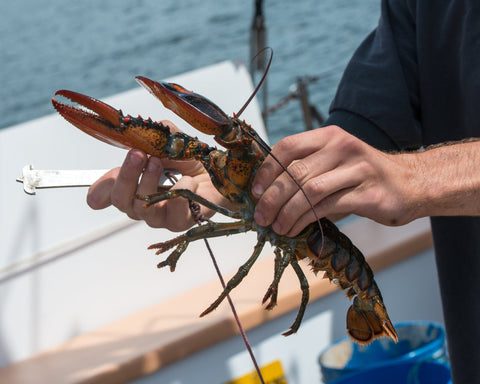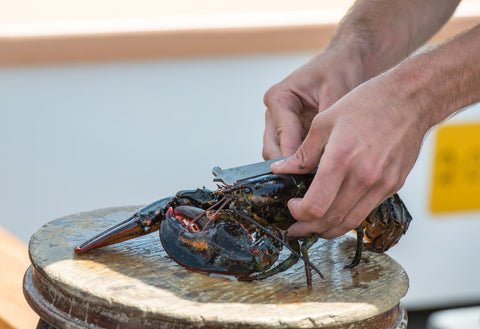Maine's lobster industry is a cornerstone of the state's economy and culture, providing livelihoods for thousands and generating billions in revenue annually. In recent years, however, regulatory measures aimed at preserving marine ecosystems stirred significant controversy among conservationists and the fishing community. One of the most debated policies was the size regulation, which restricted the harvest of lobsters outside a designated size range. While well-intentioned, the rule posed substantial challenges for the industry. Its recent repeal has brought a wave of relief and renewed hope to Maine’s lobster fishers The lobster industry in Maine is more than just a business—it’s a way of life. For generations, lobstermen have worked the waters, following long-standing traditions while adapting to changing regulations. One of the most debated policies in recent years has been the lobster size limit in Maine, a rule designed to protect lobster populations by restricting the harvest of lobsters that fall outside a specific size range. While intended to support sustainability, this regulation placed considerable strain on the industry. Its recent repeal has reignited discussions on how best to balance conservation with the livelihoods of Maine’s fishing communities. Size restrictions were initially put in place to ensure that both juvenile lobsters and larger breeding adults remained in the ocean, helping sustain future populations. The rule required lobstermen to return undersized and oversized lobsters to the sea, regardless of their overall population levels. While this was intended to prevent overfishing, many in the industry argued that the rule failed to take into account the unique characteristics of Maine’s lobster fishery. The regulation particularly impacted smaller lobsters, commonly referred to as "chix." These young lobsters are often processed into meat, making up a significant portion of the industry’s total catch. With limits on their harvest, processors faced shortages, driving up the price of lobster meat and leading to increased costs for consumers. Lobster rolls, a Maine staple, saw noticeable price hikes as a result. Beyond the economic impact, the lobster size limit in Maine also created operational challenges. Sorting lobsters according to size regulations added extra labor and time to an already demanding job. Smaller, family-run operations were hit the hardest, as they struggled with rising costs and tighter profit margins. Additionally, lobstermen raised concerns about unintended consequences, such as increased bycatch mortality. When lobsters are repeatedly handled and thrown back into the ocean, they experience stress and injuries that can reduce their survival rates. With fuel costs rising and bait shortages affecting the industry, many felt that the size limit added an unnecessary burden to an already challenging profession. The turning point in the debate over the lobster size limit in Maine came during a high-stakes meeting with Maine Marine Resources Commissioner Patrick Keliher. According to WGME, tensions ran high as lobstermen expressed frustration over what they saw as an unfair and unnecessary regulation. Critics argued that the rule gave an advantage to Canadian lobstermen, who were not subject to the same restrictions. This competitive imbalance placed Maine’s industry at a disadvantage in both domestic and international markets. Facing mounting opposition, Commissioner Keliher ultimately announced the withdrawal of the rule, pending further scientific review and input from Maine’s fishing community. “This decision is about ensuring the future of Maine’s lobster fishery,” Keliher stated. “We need regulations that make sense and support both sustainability and the livelihoods of our fishermen.” By late 2024, the lobster size limit in Maine was officially repealed. The decision was met with widespread relief among lobstermen, who saw it as validation of their long-standing conservation efforts. Many pointed to Maine’s existing sustainability measures—such as the v-notch program that protects egg-bearing females—as proof that the industry was already doing its part to maintain healthy lobster stocks. “We’ve been protecting this fishery for generations,” said John Carter, a fifth-generation lobsterman from Boothbay Harbor. “We know what works, and we don’t need one-size-fits-all rules that don’t reflect the reality of Maine’s waters.” While the repeal of the lobster size limit in Maine represents a significant win for the industry, it also highlights the ongoing need for collaboration between regulators, scientists, and fishermen. Climate change, habitat changes, and ocean acidification remain pressing concerns for the future of the fishery. Dr. Emily Greene, a marine biologist specializing in lobster populations, noted that while the industry’s conservation efforts are commendable, vigilance is key. “We have to continue monitoring lobster stocks and ensuring that we’re adapting to environmental changes. The repeal of the size limit doesn’t mean we stop working toward sustainability.” The decision to remove the lobster size limit in Maine marks a pivotal moment in the history of the state’s fishing industry. It reflects the resilience and expertise of Maine’s lobstermen while emphasizing the importance of evidence-based policy. Moving forward, industry leaders and policymakers will need to work together to ensure that Maine’s lobster fishery remains both economically viable and environmentally sustainable. For now, Maine’s lobstermen can continue their work with renewed confidence, knowing that their voices have been heard. This repeal serves as a testament to the strength of Maine’s fishing communities and their commitment to preserving both their livelihoods and the rich marine heritage of the region.Understanding the Lobster Size Limit in Maine
Economic and Operational Challenges
A Heated Debate Leads to Change
The Repeal: A Victory for Lobstermen
What This Means for the Future
Looking Ahead
A Regulation Under Fire
The size restrictions were introduced to protect lobster populations by ensuring that juveniles and larger breeding individuals remained in the ecosystem. These guidelines mandated the release of any lobsters that fell below or exceeded a specific size, regardless of their abundance. Although the initiative aimed to bolster sustainability, it failed to account for the distinctive characteristics of Maine’s fishery.
Among the lobsters most impacted by the regulation were smaller lobsters known as "chix," typically sold to lobster processors. In some cases, these smaller lobsters account for up to 30% of the total catch. By limiting their harvest, the regulation significantly affected the volume of lobsters available for processing. This created a ripple effect, driving up the cost of lobster meat and, consequently, the price of lobster rolls—a quintessential Maine delicacy. For many in the industry, the economic repercussions of the regulation outweighed its intended benefits.
Maine lobstermen have long demonstrated their commitment to sustainable fishing through self-imposed measures, such as the v-notch program, which protects egg-bearing females from harvest. For decades, these practices have preserved healthy lobster populations, earning Maine’s industry international recognition as a model for sustainability. The size regulation, however, was seen by many as redundant and unnecessarily restrictive.
Navigating Operational and Economic Hurdles
For lobstermen, the size restrictions introduced numerous operational challenges. Sorting catches to comply with the rules added time and labor to an already demanding job. Smaller operations, which dominate the Maine fleet, felt the brunt of this burden, as increased costs and reduced efficiency threatened their survival.
Additionally, the regulation inadvertently heightened bycatch mortality. Lobsters frequently handled and returned to the sea often sustained injuries or stress, reducing their chances of survival. Financially, the rule diminished the volume of marketable lobsters, squeezing margins in an industry already grappling with escalating fuel prices, bait shortages, and competition from international imports. Many lobstermen argued that their proven track record of conservation had been overlooked in favor of a one-size-fits-all policy.
Explosive Meeting Sparks Change
The turning point came during an intense meeting between lobstermen and Maine Marine Resources Commissioner Patrick Keliher. According to WGME, the meeting was marked by heated exchanges, with Keliher responding to criticism in a controversial manner. Opponents of the size regulation argued that the rule would unfairly benefit Canadian lobstermen, who were not subject to the same restrictions. This disparity, they claimed, would place Maine’s industry at a significant disadvantage.
At the hearing on Thursday, Keliher announced his agency would withdraw the rule pending new stock survey data and would include fishermen in the data collection process. He also pledged to involve Maine lobstermen in shaping future conservation strategies aimed at protecting lobster stock levels in the Gulf of Maine.
“I think this is the right thing to do because the future of the industry is at stake for a lot of different reasons,” Keliher stated during the meeting. However, the tension escalated when a man in the crowd accused Keliher of “selling out to NOAA and Canada.”
“F*** you, I sold out,” Keliher retorted, sparking further uproar. Another attendee criticized his use of foul language, shouting, “That’s nice. Foul language in the meeting. Good for you. That’s our commissioner.”
Following the meeting, Keliher issued an apology through the Bangor Daily News, stating he regretted offending anyone. He explained that his remarks stemmed from a deep passion for the industry and frustration over what he considered unfair criticism of his motives. The announcement to withdraw the rule was seen as a direct response to the collective outcry from Maine’s lobster community.
A Tipping Point for Change
Momentum to overturn the size regulation grew as evidence mounted that its benefits were negligible compared to its costs. Studies confirmed that Maine’s lobster population remained robust, thanks to existing conservation practices and favorable environmental conditions. The economic toll of the restrictions, combined with support from lawmakers, created a strong case for repeal.
By late 2024, the regulation was officially rescinded, a decision celebrated as a victory for Maine’s lobster community. For many, it validated their expertise and underscored the value of industry-driven conservation.
Reactions Across the Industry
The repeal has been met with optimism and relief among lobstermen, who now feel more empowered to focus on their work without the stress of meeting stringent size criteria. This decision also highlights the importance of balancing conservation goals with the practical realities of those working on the front lines of the fishing industry.
“This is a win for common sense and for the hardworking men and women who have fished these waters for generations,” said John Carter, a fifth-generation lobsterman from Boothbay Harbor. “We’ve shown time and again that we know how to protect the resource. Now, we can continue doing what we do best.”
Industry leaders see this repeal as an opportunity to spotlight Maine’s innovative conservation practices. Programs like the v-notch initiative and trap limits remain essential tools for ensuring the long-term sustainability of the fishery, proving that economic success and environmental stewardship can coexist.
A Balancing Act for the Future
While the repeal represents a major milestone, it also underscores the need for vigilance in protecting marine ecosystems. Climate change, habitat degradation, and ocean acidification continue to pose threats to lobster populations in the Gulf of Maine. Collaborative efforts between lobstermen, scientists, and policymakers will be crucial to addressing these challenges.
Dr. Emily Greene, a marine biologist specializing in lobster populations, expressed cautious optimism about the repeal. “It’s encouraging to see recognition of the industry’s conservation efforts,” she said. “However, we must remain proactive in tackling broader environmental issues that could affect the fishery in the future.”
Looking Ahead
The repeal of the size regulation marks a pivotal moment in the history of Maine’s lobster industry. It acknowledges the dedication and knowledge of its fishermen while emphasizing the importance of data-driven policymaking. As the industry adapts to evolving challenges, cooperation among all stakeholders will remain vital.
For now, lobstermen can return to their traditional practices with renewed confidence and pride. This decision not only alleviates operational stress but also reinforces their role as stewards of the sea. As traps are hauled and catches landed, the repeal stands as a testament to resilience, collaboration, and the enduring spirit of Maine’s fishing heritage.





